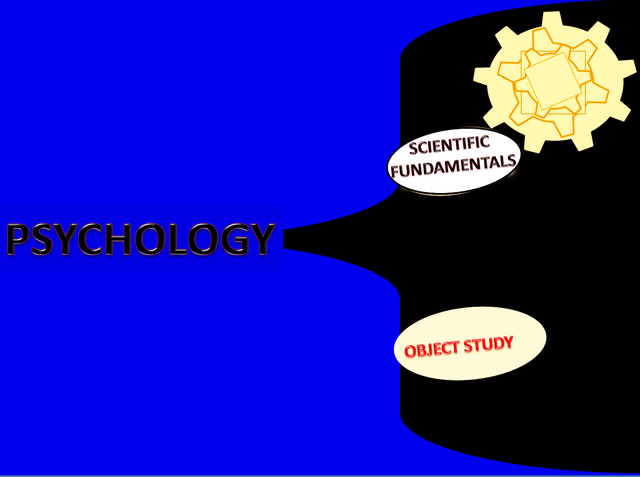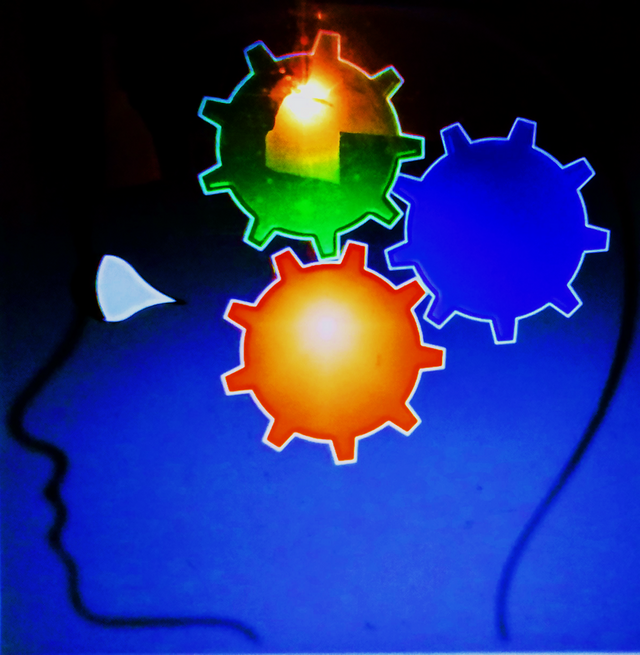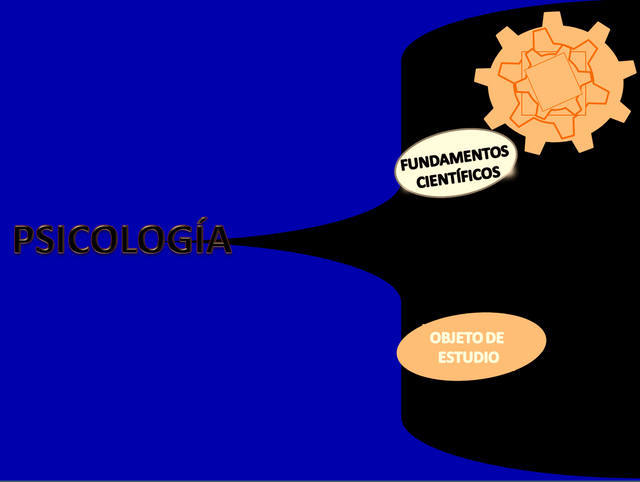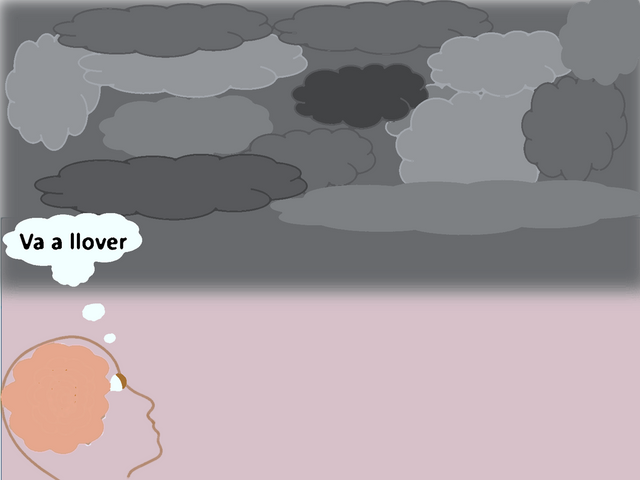Introducción a la psicología - Introduction to Psychology [ENG/ESP] | ph-fund 35% | #club75

Cover image, Psychology - Original image created with Microsoft Power Point.
English - Introduction to Psychology
Centuries ago, science was linked to philosophy. The search for truth preached by philosophers was perhaps man's closest approach to try to understand the phenomena occurring in the world. This search was focused on the constant study, reflection and questioning of the facts and daily experiences whose purpose was to obtain the understanding of a whole called "truth", first the surface was scraped and then, based on cavilings, philosophers deepened in the object of study until they reached the heart of the matter. The drawback with this method was that the "truth" could not belong to a single individual, which led to the search for a more perfect means.
In order to give greater solidity to knowledge, it began to demand evidence or facts that in some way supported the theories or discoveries that were made through the reflections. This proved extremely difficult, since in times past, when the Church was still in its heyday, much of knowledge was tinged by a "divine cover" that allowed little or no room for change. The bias imposed by the church would result in a great backwardness, after all, one could not question knowledge different from that imparted by God's representatives on earth, let alone His word translated from the sacred texts.
Despite all the above, science managed to consolidate more and more, human curiosity could not be repressed. In general terms, it is believed that many of the experiments in the Middle Ages were carried out by the "alchemists" to try to obtain the mythical formula to turn "something" into gold. Experimentation took an increasingly relevant role in science and creativity, although it was not banished, it was no longer the only instrument to reach knowledge.
It was therefore necessary to look for ways or methods to test the phenomena to be studied. The empirical measurement and demonstration of the object of study acquired great importance and the sciences that were considered of greater precision, such as Physics, obtained a more transcendent role.
Following are some of the ways that have been used throughout history to obtain knowledge:

Forms of knowledge, illustration on the empirical knowledge - Original image created with Microsoft Power Point.
Empirical: The knowledge obtained empirically is that which is based on our senses, on our experiences, that is, everything we can perceive. Empirical research requires experimentation and focuses on what is measurable, quantifiable and observable.
Reasoning: Reason is used to determine why an event or occurrence in question happens, as did philosophers who used the little information at their disposal to find the answer, usually using deductions and inferences.
A priori: This is instinctive knowledge because it is based on facts that are part of needs or processes that although we do not know or understand completely, we understand innately, such as the need to feed ourselves to satisfy hunger and survive.
Authority: Authority has always been used to impose things and knowledge is not exempt from this, such is the case of parents who educate their child and tell him "the dog is white", therefore many times people go through a process of reflection or questioning: someone who "knows more" must be right, it may be true, but not strictly necessary.
By faith: As mentioned before, faith tinged much of the knowledge, however, today this is more limited to religions or communities in which believers interact.
Intuition: Knowledge by intuition is the antithesis of empirical knowledge, since this is based more on sensations than on the senses. There are people who are able to know or perceive "something" through sensations, even when they have not been able to confirm it.

Psychology as a science - Original image created with Microsoft Power Point.
As time has gone by, science has become more and more oriented towards the search for a more precise means of verifying experiments. Different forms of knowledge have different values; empirical knowledge in particular is well positioned to be oriented towards "experimentation" of that which is observable, measurable and quantifiable. In the field of psychology, this form of knowledge is mainly used to ascertain the facts.
Psychology, which was originally linked to the philosophical schools of thought, finally broke away from them in the 19th century. In spite of the progress it has made, it continues to be highly questioned, and so far it has not been possible to measure or quantify the processes that condition human behavior through the studies carried out in recent times.
Quantifying feelings?
To discover to what extent feelings affect us in certain situations?
We do not have a counter or smart device that tells us in detail when we have crossed the line when interacting with other people, perhaps that is why it is not so easy to carry out self-evaluations, however, psychology is a science that has developed enough to know us a little better, we just have to scratch the surface to see what we find in there.

Imagen de portada, Psicología - Imagen original creada con Microsoft Power Point.
Español - Introducción a la Psicología
Siglos atrás, la ciencia se encontraba ligada a la filosofía. La búsqueda de la verdad que predicaban los filósofos era quizá, la aproximación más cercana del hombre para intentar comprender los fenómenos que ocurrían en el mundo. Dicha búsqueda se enfocaba en el constante estudio, reflexión y cuestionamiento de los hechos y vivencias cotidianas cuya finalidad era obtener la compresión de un todo llamado “verdad”, primero se raspaba la superficie y luego, a base de cavilaciones los filósofos profundizaban en el objeto estudio hasta llegar al meollo de la cuestión. El inconveniente con este método, era que la “verdad” no podía pertenecer a un solo individuo, esto desembocó en la búsqueda de un medio más perfecto.
Para otorgarle mayor solidez a un conocimiento, se empezó a exigir pruebas o hechos que de alguna forma sustentaran las teorías o descubrimientos que se realizaban a través de las reflexiones. Esto resultó sumamente difícil, puesto que en épocas pasadas, cuando la Iglesia todavía se hallaba en su apogeo, gran parte del conocimiento estaba teñido por una “cubierta divina” que permitía poco o ningún espacio al cambio. El sesgo impuesto por la iglesia traería como resultado un gran retraso, después de todo, no se podía cuestionar un conocimiento diferente al impartido por los representantes de Dios en la tierra y menos aún su palabra traducida desde los textos sagrados.
Pese a todo lo anterior, la ciencia logró consolidarse cada vez más, la curiosidad humana no podía ser reprimida. En términos generales, se cree que muchos de los experimentos en la edad media, fueron llevados a cabo por los “alquimistas”, para intentar obtener la mítica fórmula de convertir “algo” en oro. La experimentación tomó un papel cada vez más relevante en la ciencia y la creatividad, aunque no fue desterrada, ya no era el único instrumento para llegar al conocimiento.
Era necesario pues, buscar formas o métodos que permitieran comprobar los fenómenos que se pretendían estudiar. La medición y demostración empírica del objeto de estudio adquirió gran importancia y las ciencias que se estimaban de mayor precisión, como la Física, obtuvieron un papel más trascendente.
A continuación, algunas de las formas que han sido utilizadas a través de la historia para obtener el conocimiento:

Formas del conocimiento, ilustración sobre el conocimiento empírico - Imagen original creada con Microsoft Power Point.
Empírico: El conocimiento que se obtiene de forma empírica es aquel que está basado en nuestros sentidos, en nuestras vivencias, es decir, todo aquello que podemos percibir. La investigación empírica requiere de la experimentación y se enfoca en aquello que es medible, cuantificable y observable.
Razonando: Se utiliza la razón para determinar porque ocurre un evento o suceso en cuestión, tal y como lo hacían los filósofos que usaban la poca información a su disposición para hallar la respuesta, normalmente, usando deducciones e inferencias.
A priori: Este es un conocimiento instintivo porque se basa en hechos que forman parte de necesidades o procesos que si bien no conocemos o entendemos por completo, comprendemos de forma innata, como la necesidad de alimentarnos para saciar el hambre y sobrevivir.
Autoridad: La autoridad siempre se ha utilizado para imponer cosas y el conocimiento no está exento de ello, tal es el caso de los padres que educan a su hijo y le dicen “el perro es blanco”, por ende muchas veces las personas pasan mediante un proceso de reflexión o cuestionamiento: alguien que “sabe más” debe tener razón, puede ser cierto, pero no estrictamente necesario.
Por fe: Como se mencionó antes, la fe teñía gran parte del conocimiento, no obstante, en la actualidad esto se encuentra más limitado a las religiones o comunidades en las cuales interactúan los creyentes.
Intuición: El conocimiento por intuición es la antítesis del conocimiento empírico, puesto que este se basa más en las sensaciones que en los sentidos. Hay personas que son capaces de saber o percibir “algo” a través de las sensaciones, incluso cuando no han podido confirmarlo.

Psicología como una ciencia - Imagen original creada con Microsoft Power Point.
A medida que ha transcurrido el tiempo, la ciencia fue tomando un enfoque cada vez más orientado hacia la búsqueda de un medio más preciso en cuanto a la comprobación de los experimentos. Las diferentes formas de conocimientos tienen distintos valores, la empírica en particular, se encuentra bien posicionada al estar orientada hacia la “experimentación ” de aquello que es observable, medible y cuantificable. En el campo de la psicología se utiliza principalmente esta forma de conocimiento para constatar los hechos.
La psicología que en un principio se hallaba ligada a las escuelas de pensamiento filosófico, se separó de estas finalmente en el siglo XIX. Pese a los progresos que ha tenido, sigue siendo muy cuestionada, hasta ahora no se ha logrado medir ni cuantificar a través de los estudios realizados en las últimas épocas los procesos que condicionan la conducta humana.
¿Cuantificar los sentimientos?
¿Descubrir en qué medida nos afectan los sentimientos en determinadas situaciones?
No tenemos un contador o dispositivo inteligente que nos indique con lujo de detalles cuando nos hemos pasado de la raya al interactuar con otras personas, quizá por eso no resulta tan sencillo llevar a cabo autoevaluaciones, sin embargo, la psicología es una ciencia que se ha desarrollado lo suficiente como para conocernos un poco mejor, solo hay que raspar la superficie para ver que encontramos ahí dentro.
Me despido, cuídense mucho.
Muchas gracias por leer, espero les haya gustado.
Sinceramente les deseo salud y éxito.
Esta publicación está configurada para entregar el 35% de las recompensas obtenidas a la cuenta comunitaria @ ph-fund.
Y como no, agradezco también al resto de los curadores, moderadores y administradores que se esfuerzan día a día por que no haya una sola publicación desprovista de atención.
I'll say goodbye, take care of yourselves.
Thank you very much for reading, I hope you liked it.
I sincerely wish you health and success.
This publication is set to deliver 35% of the rewards obtained to the community account @ ph-fund.
And of course, I also thank the rest of the curators, moderators and administrators who strive every day so that there is not a single publication without attention.
| Camera | Photographer | Image Editor |
|---|---|---|
| Honor 7s | @leonelb | Microsoft Powerpoint 2010 |
| Capturas de pantalla |
Hello @leonelb
Welcome to the Project.HOPE community, I hope you can adapt to our way of interacting in the community. This kind of content related to psychology will be very useful for the community.
Best regards, be well.
Of course, if friend, I hope you like this kind of content since I will focus mostly on psychology. I am currently reading some books to get more general knowledge and so start with an introduction. I think it will be a long journey, but it will be very interesting.
happy day.
#affable #venezuela
Hello @leonelb
The way to reach some kind of knowledge has always varied throughout history, at some times were frowned upon the study of.la.anatomia, for example, especially in the middle ages, but if the doctors of the time were not made those studies, it would not have advanced as it did.
Religions have always been a great limitation for science, "forbidden to think that everything is already written in the sacred books ", because, based on that there is no need to investigate anything, but luckily there have been people who go beyond those sacred words and have made science and knowledge evolve.
Interesting topic that you have shared, and very well raised in addition. Thank you for sharing it.
Welcome to the Project.Hope community.
Yes, it is fascinating, I plan to make this a series of publications that will cover a fairly large number. I had planned to publish the next part yesterday, but due to some setbacks I could not. If God wants the next part to be ready today, thank you for reading.
Happy day.
#affable #venezuela
Greetings @leonelb _
Undoubtedly a very interesting publication that makes us think a lot about the construction of thought and how the human being can perceive it.
Thank you very much for sharing your publication
The way we perceive things and the understanding of the different stimuli that can affect the human being give us a greater understanding of certain aspects that are important to understand. I hope this information dispels a little the fog that sometimes does not allow us to see.
Thanks for reading.
#affable #venezuela
@tipu curate 3
Thank you very much for the support friend, I will probably post the next part between today and tomorrow, just wait for it.
Happy day.
#affable #venezuela
Hi @leonelb the construction of reality from its purely sociological essence is a construct that the human being builds through the way in which he perceives it through the senses and the stimuli to which he is subject according to the processes of institutionalization of society. and the areas of interaction
It's right friend, you couldn't have said it in a better way, but I think most people don't fully understand the things they perceive, including myself, and sometimes we ignore the stimuli that affect us directly or indirectly for different reasons. I am starting to read psychology books to nourish a little my knowledge about it and try to gain a greater understanding about those things, especially the details that surround human interaction and their respective "reactions" are very interesting to me.
Thanks for reading.
#affable #venezuela